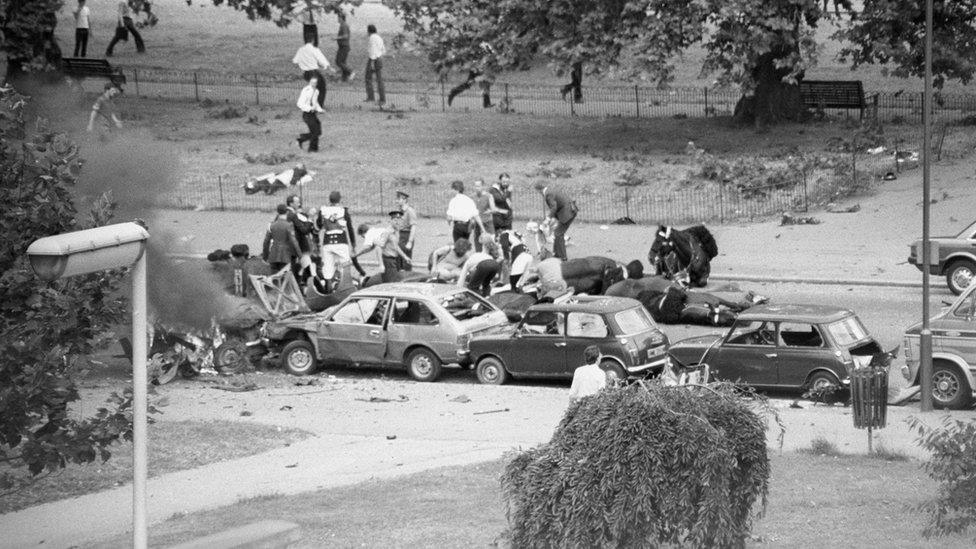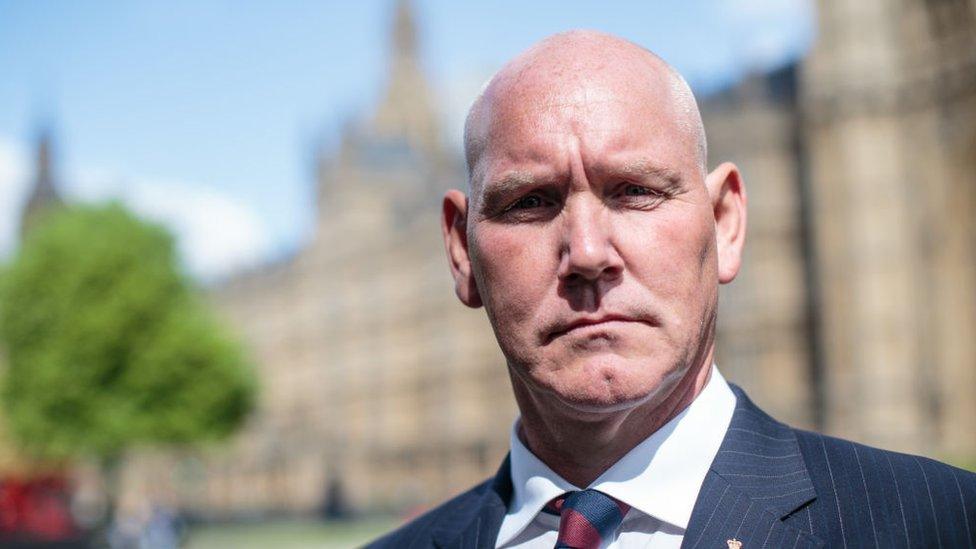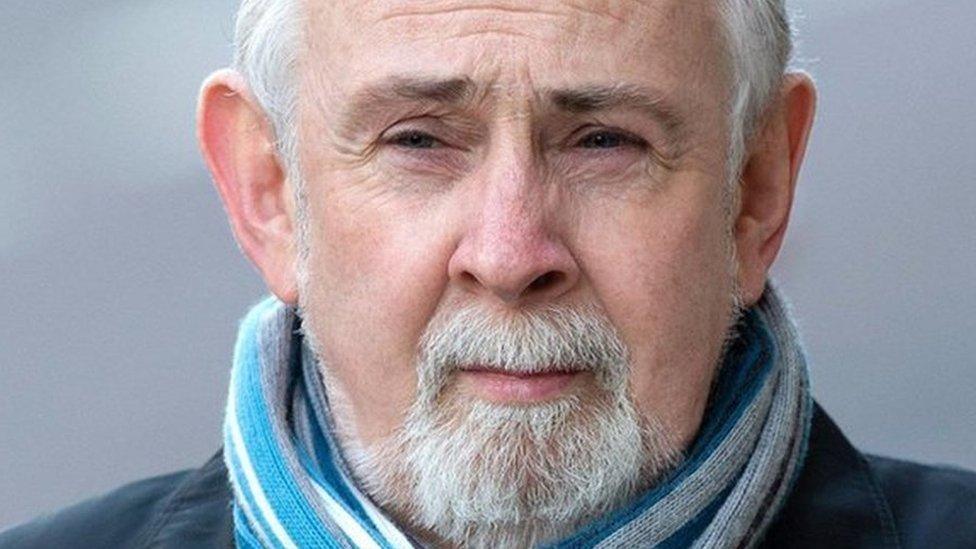John Downey: Hyde Park bomb case hears from survivor
- Published

Four Household Cavalry soldiers died in the IRA's Hyde Park bomb attack as they rode to the Changing of Guard ceremony in Whitehall
A survivor of the Hyde Park bombing has described the explosion which killed four of his fellow soldiers.
Simon Utley was 18 years old and on his first guard duty with the Household Cavalry when the car bomb exploded on 20 July 1982.
Mr Utley was speaking during the civil action against John Downey brought by the daughter of one of those killed.
In 2014, a criminal prosecution against Mr Downey collapsed in controversial circumstances.
It did so after it emerged that Mr Downey had received an assurance from the government that he was not wanted in connection with any offence.
Mr Downey is not being represented at the civil case.
The 1982 blast killed Squadron Quartermaster Cpl Roy Bright, 36, Lt Dennis Daly, 23, Trooper Simon Tipper, 19, and L/Cpl Jeffrey Young, 19.
L/Cpl Young's daughter, Sarah Young, is bringing a High Court action on behalf of a number of the victims' relatives against Mr Downey.
Giving evidence in London on Wednesday, Mr Utley's voice wavered with emotion as he told the court what happened at the time of the blast.
"I was riding along, it was my first guard so I was excited," he said.
"I remember I was talking to the guy to my left, just asking about what I would be doing later on ... and then the bomb went off.

Simon Utley was 18 years old and on his first guard duty with the Household Cavalry when the car bomb exploded on 20 July 1982
"It was a noise that I can't describe, but it was a painful noise because it took my eardrum out."
Finger print evidence
Earlier on Wednesday, the court was told that fingerprint evidence links Mr Downey to the IRA car bomb used to murder four soldiers at Hyde Park in London 37 years ago.
Five prints were found on two parking tickets relating to the car on days leading up to the attack in July 1982.
However, the court heard he has denied involvement in the Hyde Park attack.
A lawyer for the relative bringing the case told the court the "fingerprint evidence is damning".

John Downey received an assurance he would not face prosecution
"[Mr Downey] has no answer to it," added the lawyer.
The attack was described as "precision murder".
A 20lb (9kg) bomb packed with nails and placed in the boot of a car was detonated by remote control as the soldiers rode past on the way to Whitehall.
The lawyer said its objective was "cold-blooded killing with vicious brutality and maximum harm - [Mr Downey] is liable for this".
So-called "on-the-run" letters were issued as part of the Northern Ireland peace agreement in 1998.
The judge in the criminal trial ruled the letter guaranteed Mr Downey would not face trial and that to proceed was an abuse of executive power.
The civil proceedings are due to last for three days and are similar to a landmark case brought in 2009 by relatives of those killed in the 1998 Omagh bomb.
Civil cases have a much lower burden of proof than in criminal prosecutions, with a judge reaching a verdict based on the balance of probabilities.
Mr Downey is remanded in custody at Maghaberry Prison in Northern Ireland facing other charges.
The 67-year-old from Creeslough in County Donegal in the Republic of Ireland is accused of murdering Ulster Defence Regiment (UDR) soldiers Alfred Johnston and James Eames in an IRA bomb attack in Enniskillen in County Fermanagh in 1972.

Who are the "on-the-runs"?
The Northern Ireland Good Friday Agreement of 1998 meant anyone convicted of paramilitary crimes was eligible for early release.
However, that did not cover those suspected of such crimes, nor did it cover people who had been charged or convicted but who had escaped from prison.
Negotiations continued after the signing of the agreement between Sinn Féin and the government over how to deal with those known as "on-the-runs".
Sinn Féin sought a scheme that would allow escaped prisoners and those who were concerned they might be arrested to return to the UK but a formal legal solution proved difficult to establish in the face of strong unionist opposition.
Against that backdrop, the IRA had still not put its weapons beyond use and Sinn Féin needed grassroots republicans to continue supporting the peace process.
